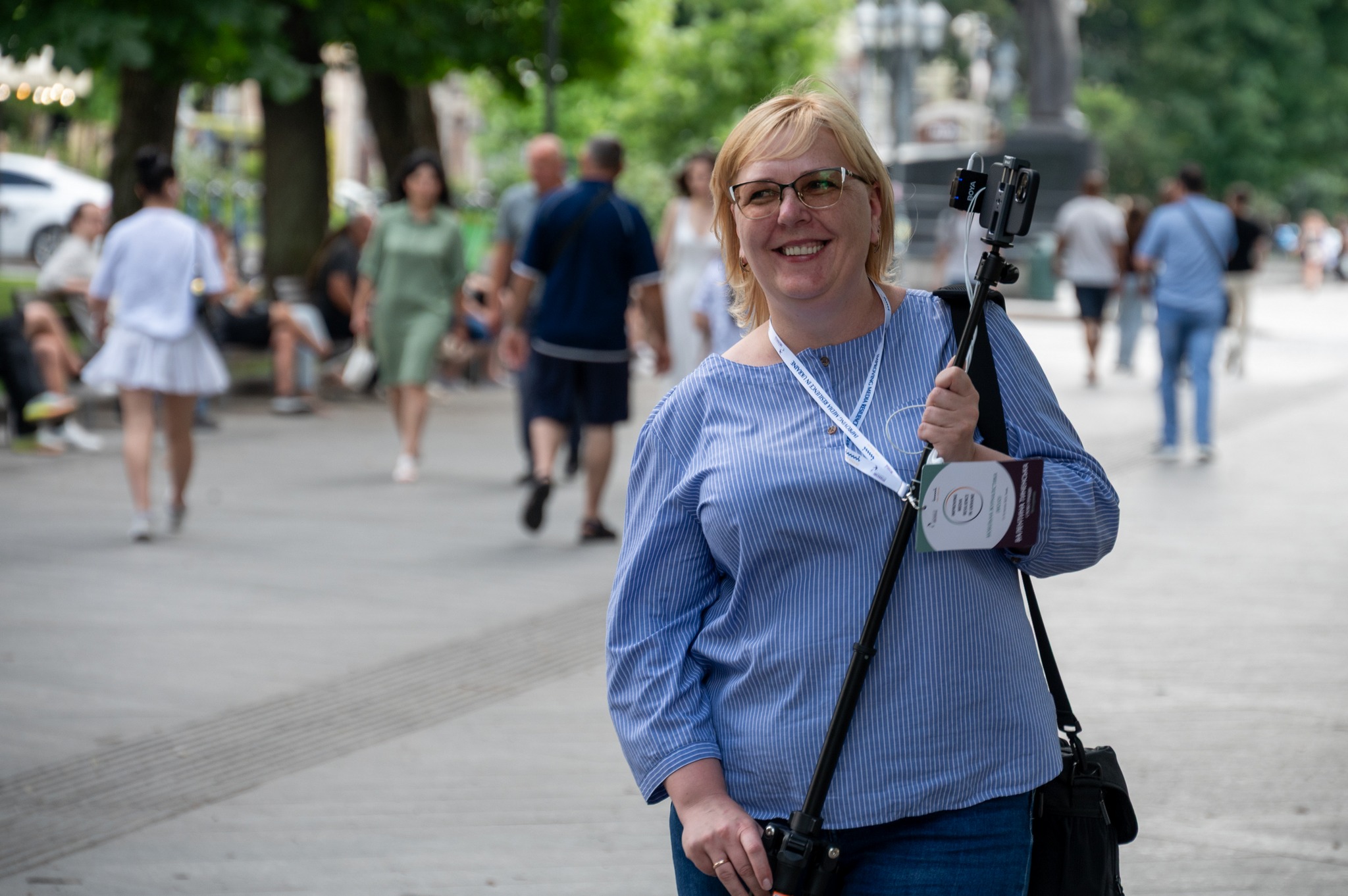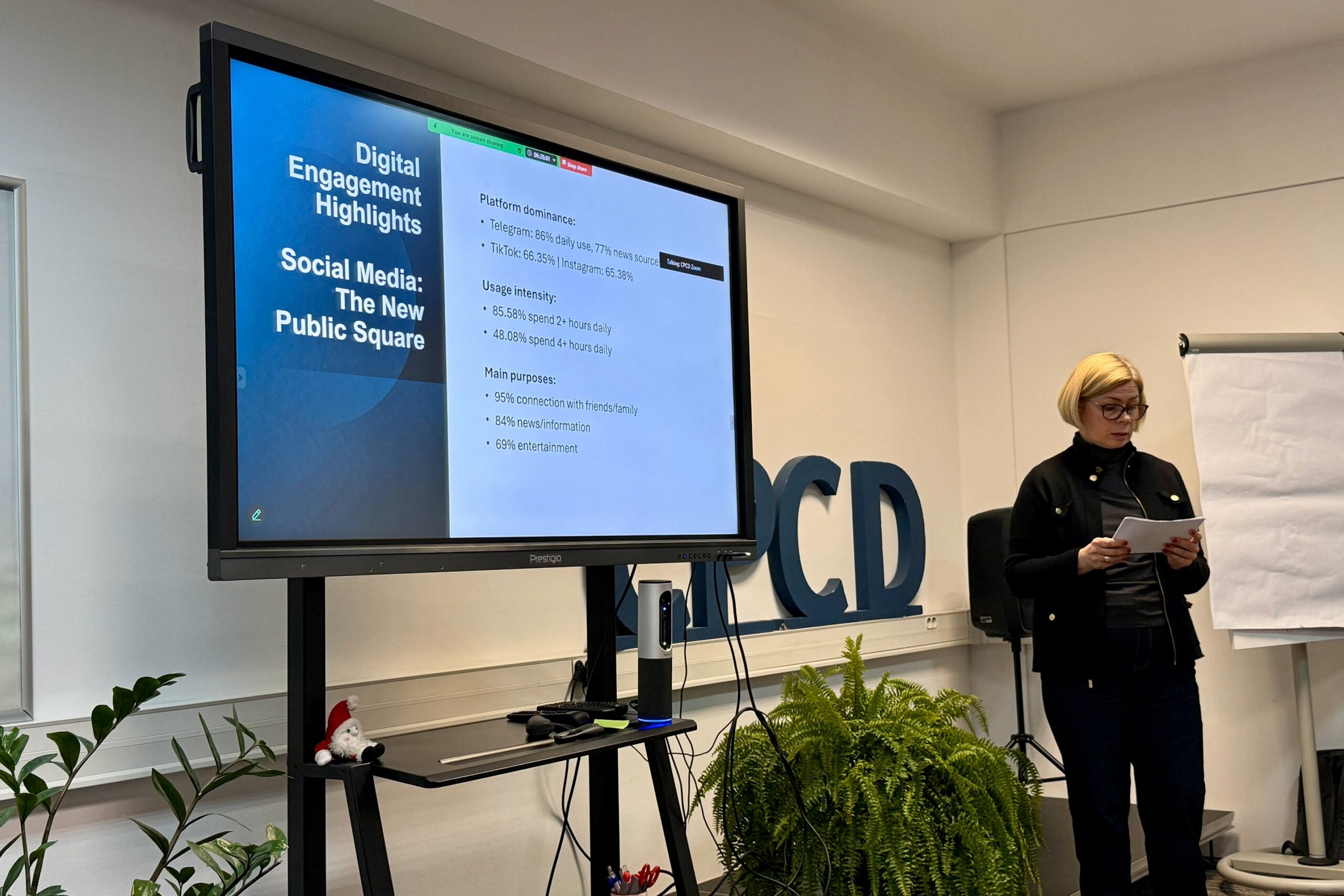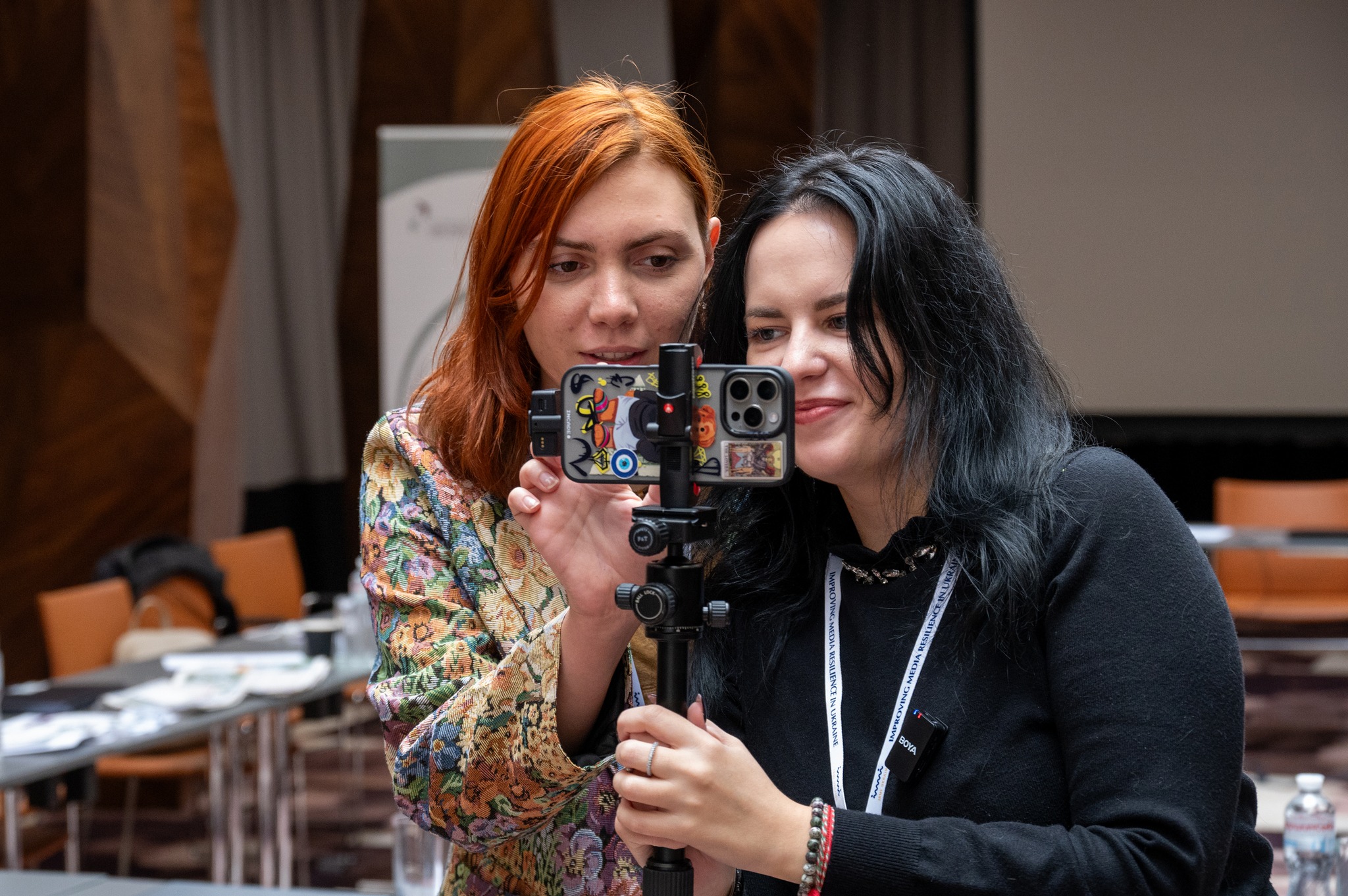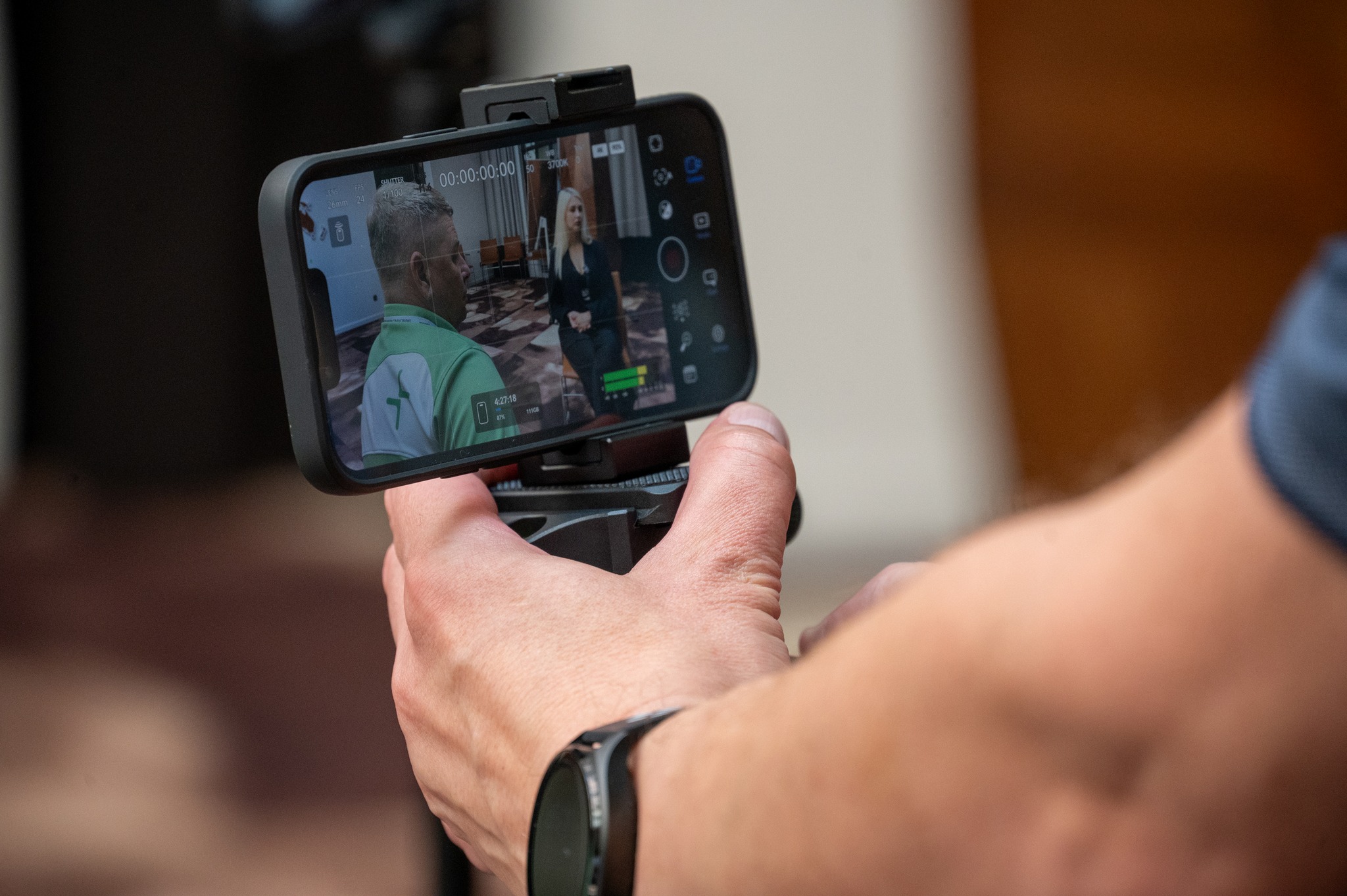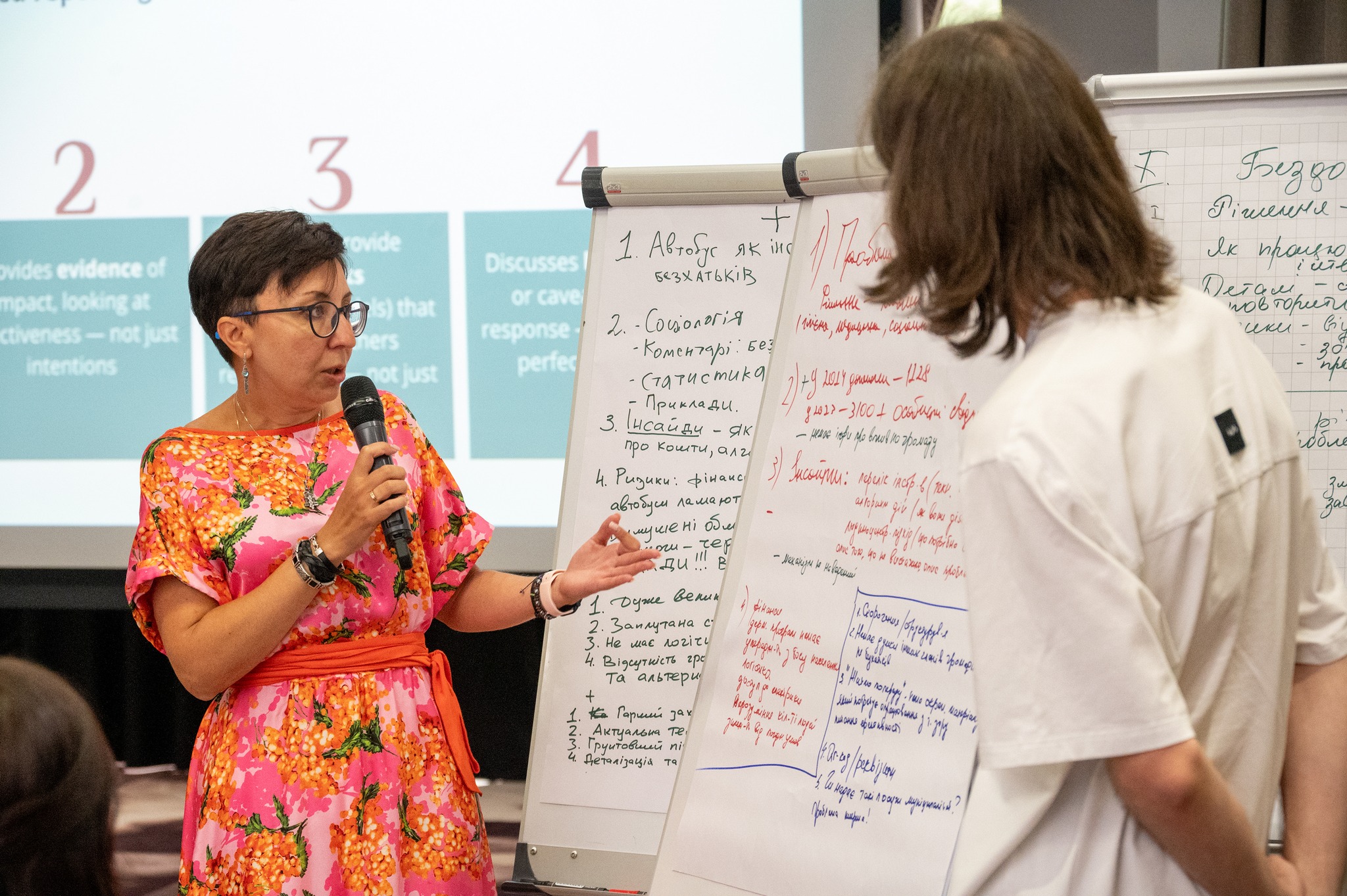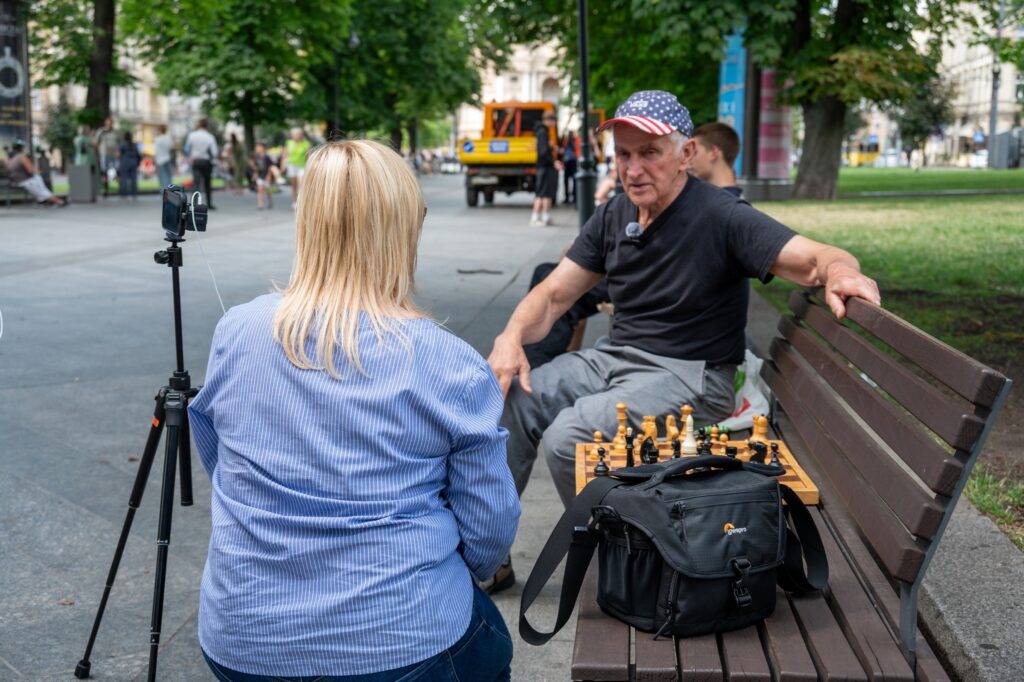
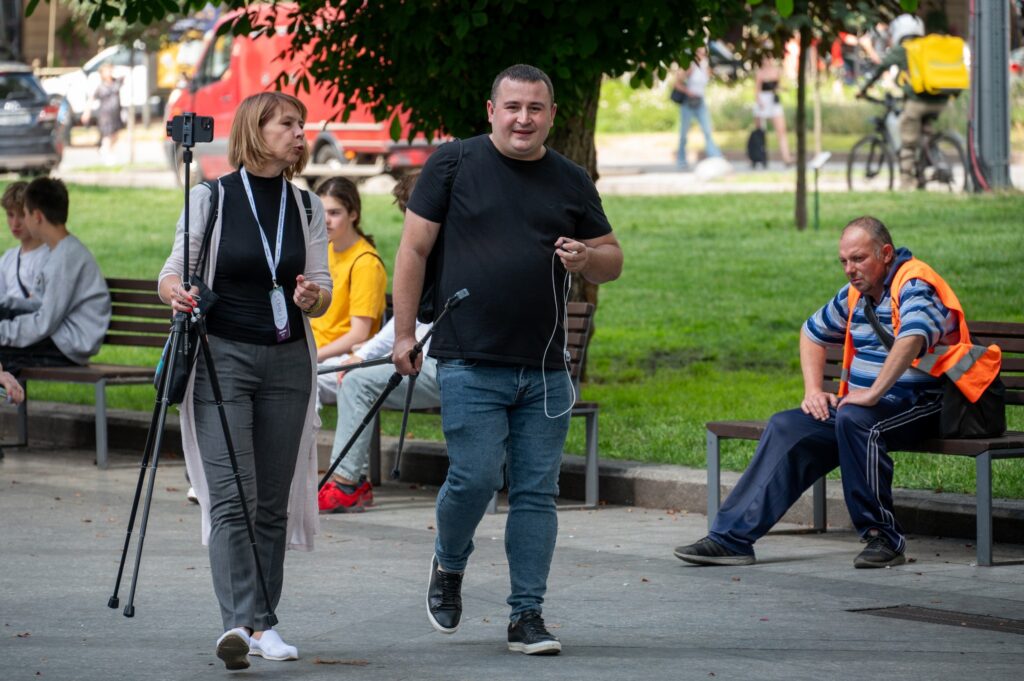
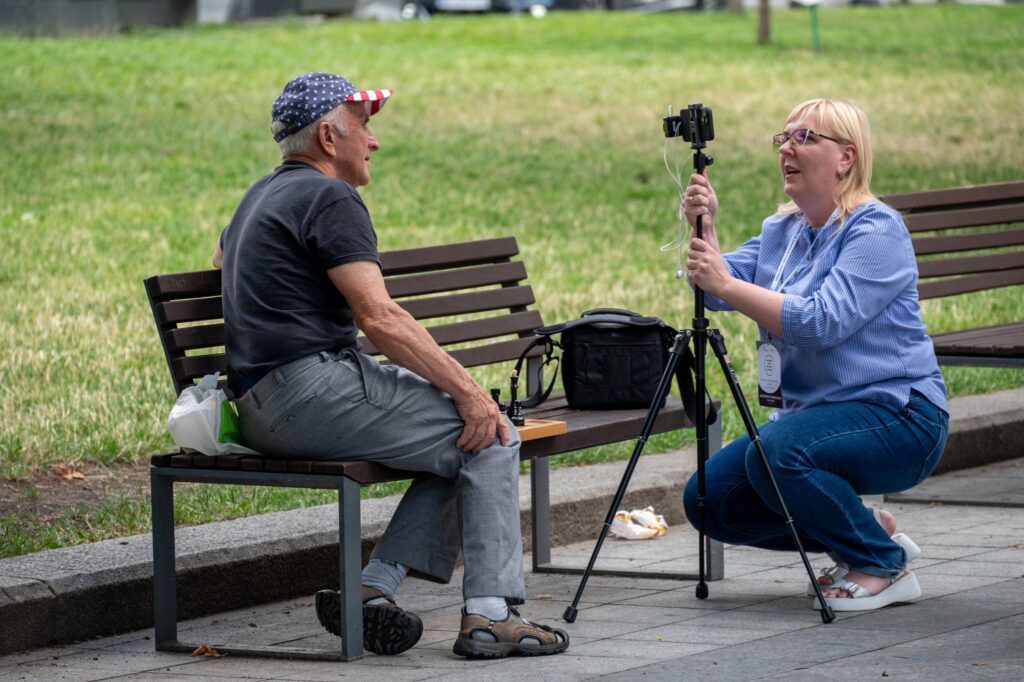
A fresh cohort has joined our second mobile journalism training for media professionals eager to embrace MOJO. The challenge: in just four days, participants must progress from basic camera skills to producing broadcast-quality content for their newsrooms. These are genuinely motivated journalists, determined to harness mobile journalism to enhance their outlets’ content.
Day one saw participants receiving MOJO equipment for their newsrooms, with trainers helping configure the kit. They practised techniques, filmed pieces to camera, interviewed each other and edited footage. They shared experiences, celebrated small victories. Morning sessions reviewed first edits, correcting mistakes.
The real excitement? Field work. Finding stories and contributors in everyday life whilst mastering technology against the clock. Each journalist chose their angle: relocated businesses turning crisis into opportunity; gratitude to soldiers; inclusion; youth centres creating opportunities for self-realisation. All themes addressed social cohesion and recovery. Filming their stories, journalists deployed every tool from the training – writing stand-ups, voiceovers, vox pops, street interviews across Lviv. They drafted scripts, recorded narration, edited and refined. For many, this was their first MOJO experience, yet despite challenges, trainers deemed the results impressive.
The story festival winners:
- Diana Kovalenko (Tochka Dostupu, Kropyvnytskyi)
- Maryna Bezpalchenko (Myrhorod City TV Studio)
- Oleksandr Solomko (Na Mezhi, Yampil)
Though everyone received sweet prizes for excellent work.
Natalia Shutko, Nash Krai (Lypova Dolyna): “Multimedia content is media’s future. I’m grateful I’ve learned this – we’ll implement it, perhaps even monetise it eventually. Special thanks for the equipment – we never dreamed of having such kit.”
Diana Kovalenko, Tochka Dostupu (Kropyvnytskyi): “Nerve-wracking – constantly worried something wouldn’t record, no sound – one speaker interview failed completely. But we could experiment, play, learn, strive for better. Brilliant experience. I can already see myself covering events, getting great shots. Our outlet will have much better content.”
Tetiana Diuh, Versii (Ivano-Frankivsk): “Challenging. I didn’t know how to handle equipment, most terminology was foreign. Intensive learning, never enough time. Valuable experience – you can write volumes, but distilling essentials into three minutes, telling stories through other voices, not your own – that’s crucial. I’ve much to learn, but I will.”
The training is part of the Improving Media Resilience in Ukraine Project, implemented by Fondation Hirondelle (Switzerland) and IRMI, Institute for Regional Media and Information (Ukraine). Funded by Swiss Solidarity.


